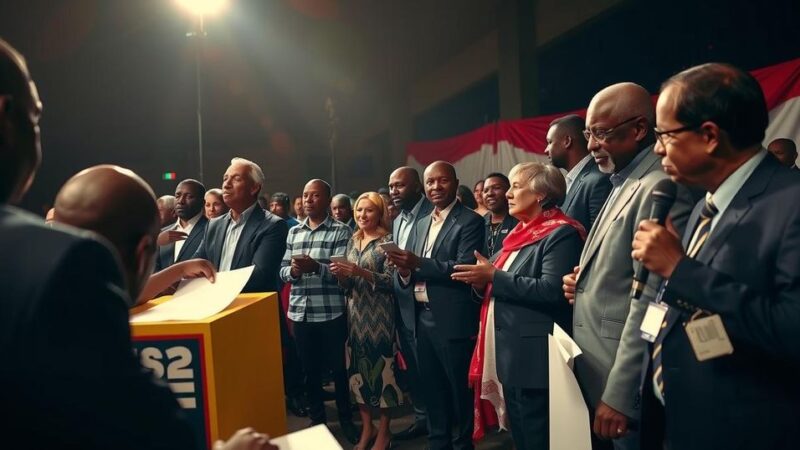Namibia’s election on Wednesday poses a significant challenge for SWAPO, the ruling party since 1990, amid rising youth discontent over unemployment and corruption. With over 40% of voters under 35, this demographic’s engagement may reshape the electoral landscape. The outcome could be historic, either electing Namibia’s first female president or marking a shift in power to the opposition, particularly if voter turnout trends indicate a fragmentation of support for SWAPO.
Voters in Namibia will cast their votes on Wednesday, facing their most significant electoral challenge yet against the South West Africa People’s Organization (SWAPO), which has been in power since the nation’s independence in 1990. This election comes at a time when several southern African liberation parties have faced electoral defeats, signaling changing political dynamics influenced by rising discontent over high unemployment rates, government corruption, and poor living conditions. The youth demographic, comprising over 40% of registered voters, represents a growing force that could impact the election significantly, although their actual voter turnout remains uncertain.
Amidst concerns over economic hardships and a severe housing shortage, political analysts suggest that nostalgia surrounding past liberation movements is waning, especially among younger voters who are increasingly concerned with current living conditions rather than historical achievements. While SWAPO aims to engage this young electorate through attractive campaigns, the effectiveness of these strategies remains to be seen.
This election could lead to a historic outcome, potentially resulting in Namibia’s first female president, Netumbo Nandi-Ndaitwah, or the election of a leader from the opposition. The electoral landscape may also favor SWAPO because of a fragmented opposition, with numerous candidates possibly diluting the anti-SWAPO vote. The voting process will be closely watched, particularly since this election could lead to a runoff for the first time if no candidate receives more than 50% of the votes in the first round.
The current election cycle in Namibia is critical as it reflects the broader trend in southern Africa, where former liberation parties, once celebrated for their roles in the fight against colonialism, are facing increasing scrutiny and dissatisfaction from voters. Years of governance have led to substantial social issues including unemployment, corruption, and inadequate housing, which have tarnished the reputations of these parties. With over 40% of registered voters being young, there is a shift in political engagement, as young voters are becoming less loyal to historical parties and more focused on the pressing issues that affect their lives. This election is particularly crucial as it could lead to either a continuation of SWAPO’s dominance or a significant change in leadership.
The upcoming elections in Namibia are poised to test the political landscape significantly, particularly for SWAPO, which has long held power since independence. Contributory factors such as high youth registration and dissatisfaction with the status quo may influence the electoral outcomes. Voter turnout among young constituents remains critical, and with the prospect of a runoff, the results could signal the beginning of a transformative political era for Namibia. As citizens head to the polls, the implications of their choices will extend beyond the election, potentially reshaping governance and societal support for current policies.
Original Source: www.nytimes.com






